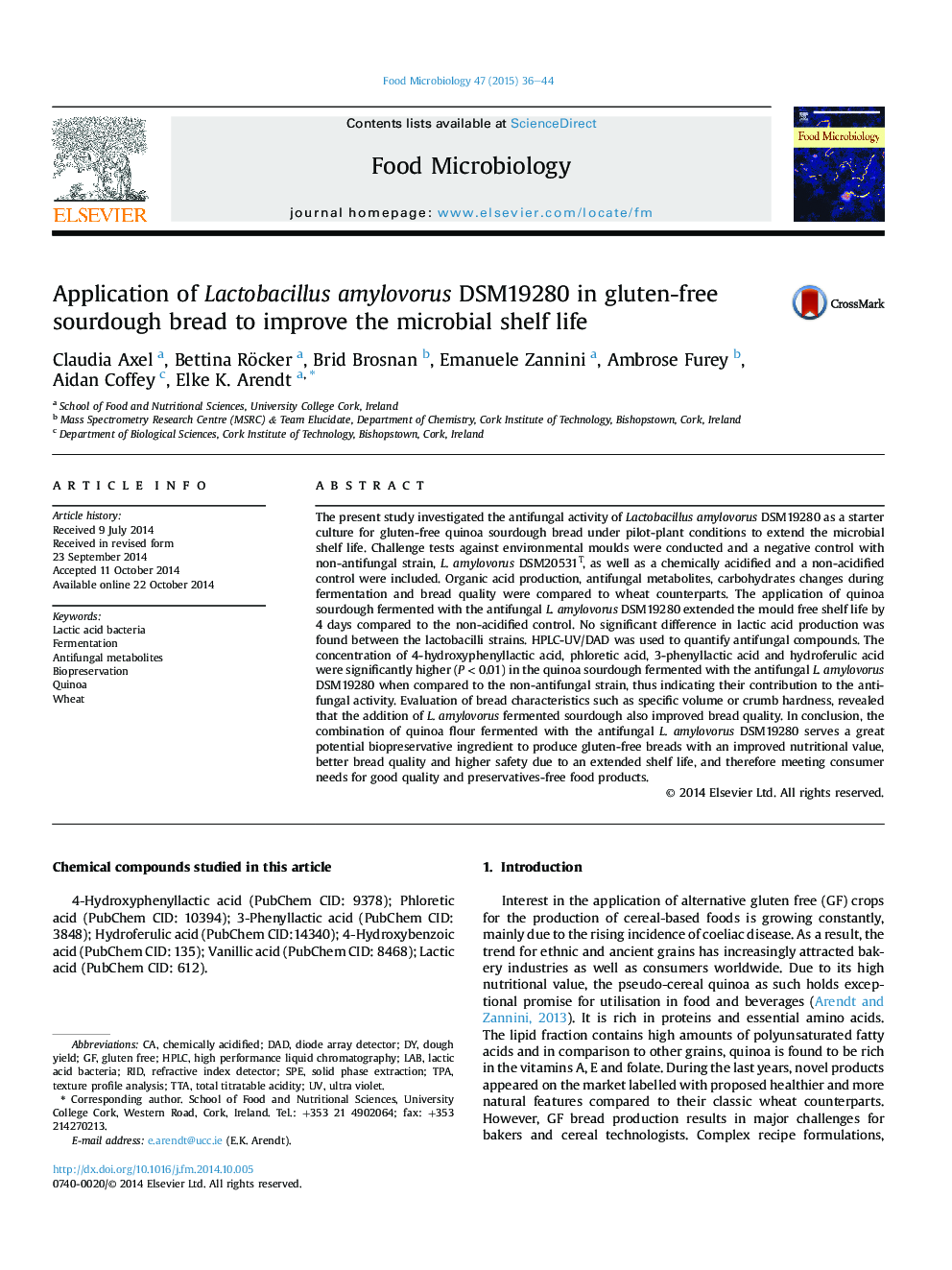| کد مقاله | کد نشریه | سال انتشار | مقاله انگلیسی | نسخه تمام متن |
|---|---|---|---|---|
| 4362848 | 1616253 | 2015 | 9 صفحه PDF | دانلود رایگان |

• Longer shelf life of gluten free bread using biopreservatives.
• Lactobacillus amylovorus DSM19280 produced higher amounts of antifungal compounds in quinoa sourdough.
• The production of antifungal compounds in sourdough is strain and substrate specific.
The present study investigated the antifungal activity of Lactobacillus amylovorus DSM19280 as a starter culture for gluten-free quinoa sourdough bread under pilot-plant conditions to extend the microbial shelf life. Challenge tests against environmental moulds were conducted and a negative control with non-antifungal strain, L. amylovorus DSM20531T, as well as a chemically acidified and a non-acidified control were included. Organic acid production, antifungal metabolites, carbohydrates changes during fermentation and bread quality were compared to wheat counterparts. The application of quinoa sourdough fermented with the antifungal L. amylovorus DSM19280 extended the mould free shelf life by 4 days compared to the non-acidified control. No significant difference in lactic acid production was found between the lactobacilli strains. HPLC-UV/DAD was used to quantify antifungal compounds. The concentration of 4-hydroxyphenyllactic acid, phloretic acid, 3-phenyllactic acid and hydroferulic acid were significantly higher (P < 0.01) in the quinoa sourdough fermented with the antifungal L. amylovorus DSM19280 when compared to the non-antifungal strain, thus indicating their contribution to the antifungal activity. Evaluation of bread characteristics such as specific volume or crumb hardness, revealed that the addition of L. amylovorus fermented sourdough also improved bread quality. In conclusion, the combination of quinoa flour fermented with the antifungal L. amylovorus DSM19280 serves a great potential biopreservative ingredient to produce gluten-free breads with an improved nutritional value, better bread quality and higher safety due to an extended shelf life, and therefore meeting consumer needs for good quality and preservatives-free food products.
Journal: Food Microbiology - Volume 47, May 2015, Pages 36–44